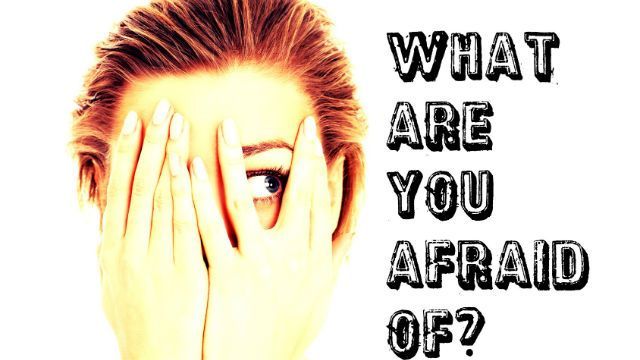
Everyone has been afraid of something now and then. It may be that black spider hiding out in your shower, or an upcoming flight you just can’t bear to take. Fears are unique and affect people differently.
Yet, while a fear may cause a bit of unease or a fair amount of anxiety, when the feeling becomes overwhelming to the point where your quality of life is affected, chances are the fear has evolved into a full-blown phobia.
A phobia is an intense fear of a thing or situation. Often, fears and phobias are irrational, and the underlying cause is unknown. In general, most phobias are very specific and develop during childhood between the ages of 4 and 8. They are generally categorized into one of four classifications:
- Animal: These would include anything from an insect to a bear.
- Natural environment: These include snow storms, lightning, floods or other natural events.
- Situational: A situational phobia would include, flying, driving over a bridge or being in a closed space.
- Blood/injection/injury: These phobias include blood, medical procedures or illness.
Though while these four classifications incorporate specific fears, there are two phobias that are not so easily classified.
Social phobia is a type of anxiety disorder that encompasses multiple situations. The individual is often extremely self-conscious and fears judgement from others. They may have a fear of eating or drinking in front of others, public speaking or being placed in situations where they will have to converse with other people.
A social phobia tends to develop later than traditional specific phobias, somewhere in the late teens to early 20s. The anxiety experienced can be so intense that the individual will go to great lengths to avoid social settings.
Agoraphobia is defined as a fear of public or open spaces. Similar to a social phobia, agoraphobia tends to develop a bit later than a traditional phobia, and encompasses multiple situations.
The individual may fear public places, crowds, wide open spaces or secluded locations. They often fear that help would not be available in the event of a disaster or that they could not easily escape.
Fears and phobias, even though they are often irrational, can be a significant source of anxiety and pain. If the fear causes nothing more than unease or discomfort and doesn’t keep you from performing your daily tasks, then professional treatment often isn’t necessary.
However, if the fear causes anxiety to the extent that you find yourself going to great lengths to avoid certain situations and it is affecting the quality of your life, your fear is more than likely a phobia and should be addressed.
Luckily, treatment for phobias are often highly successful and don’t always require the help of a professional. In fact, self-help can build confidence and lead to more self-assurance in a variety of situations. Here are a few techniques you can try to help tame your fears.
Gradual exposure. Often, facing your fear is the best way to regain the control that your phobia has over you. Start with a list of all the fears you have about your phobia. Begin with the least intimidating and work your way towards the most. Gradually expose yourself to these situations each day until you work your way up the list.
Hone relaxation skills. Practice some deep breathing exercises or visualization techniques. When faced with the fear, practice taking deep breaths and focus on relaxing thoughts to help lower blood pressure and heart rate. Visualize your body and muscles relaxing. These techniques will help combat the physical effects of a phobia.
Evaluate your negative thoughts. Write a list of your negative thoughts concerning your fear. Then, evaluate why you are afraid of each one. Often, these fears or thoughts are irrational and coming to terms with that can help train your brain.
 If you don’t feel comfortable facing your fears alone, it may be beneficial to enlist the help of a friend. Often, even simply discussing it with someone can be a big help. You may also want to consider chronicling your experiences in a journal. However, in the event that the anxiety is too great for you to even take the very first steps, you may want to enlist the help of a professional.
If you don’t feel comfortable facing your fears alone, it may be beneficial to enlist the help of a friend. Often, even simply discussing it with someone can be a big help. You may also want to consider chronicling your experiences in a journal. However, in the event that the anxiety is too great for you to even take the very first steps, you may want to enlist the help of a professional.
Either way, fears and phobias needn’t rule your life. Acknowledging the problem is the first step to enjoying a fear-free life.
-The Alternative Daily
Sources:
http://www.health.harvard.edu/special_health_reports/coping-with-anxiety-and-phobias
http://www.helpguide.org/mental/phobia_symptoms_types_treatment.htm
http://www.nhs.uk/Conditions/stress-anxiety-depression/Pages/dealing-with-fears.aspx
http://psychcentral.com/lib/overcoming-fears-phobias-and-panic-attacks/0002163

